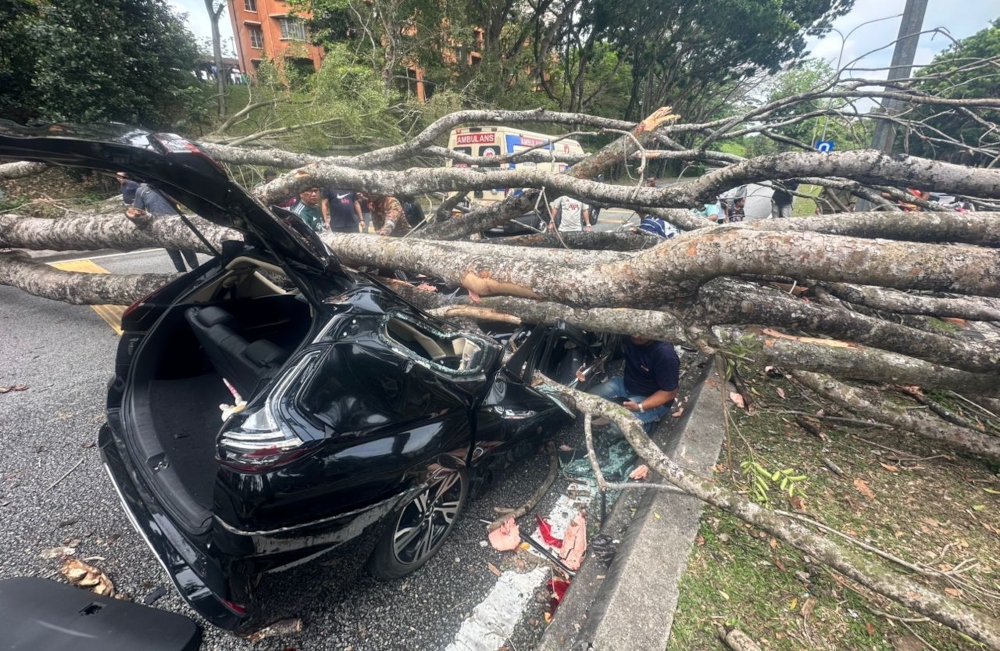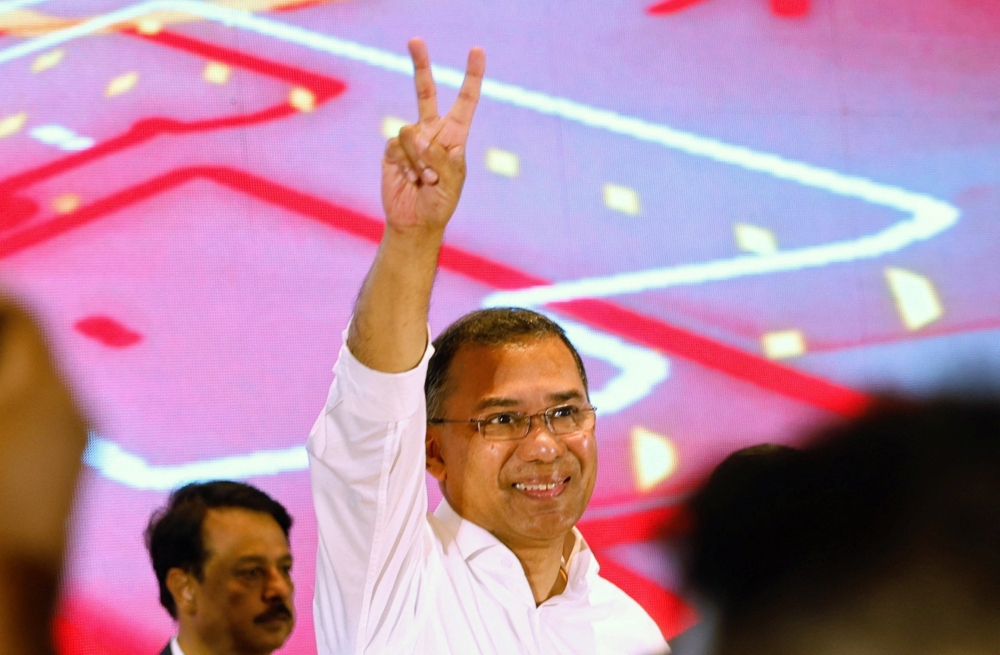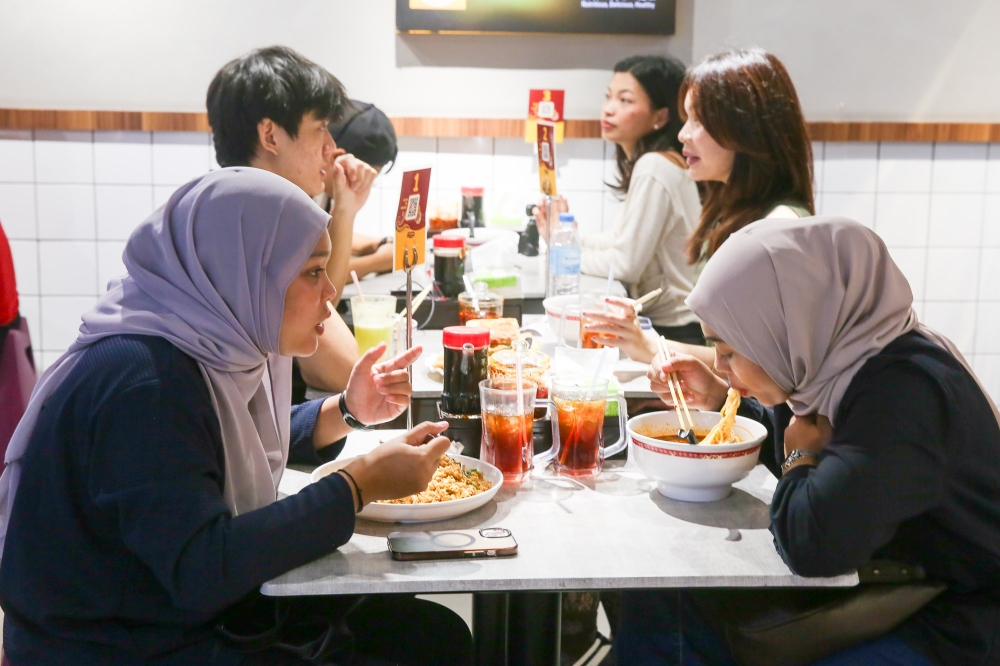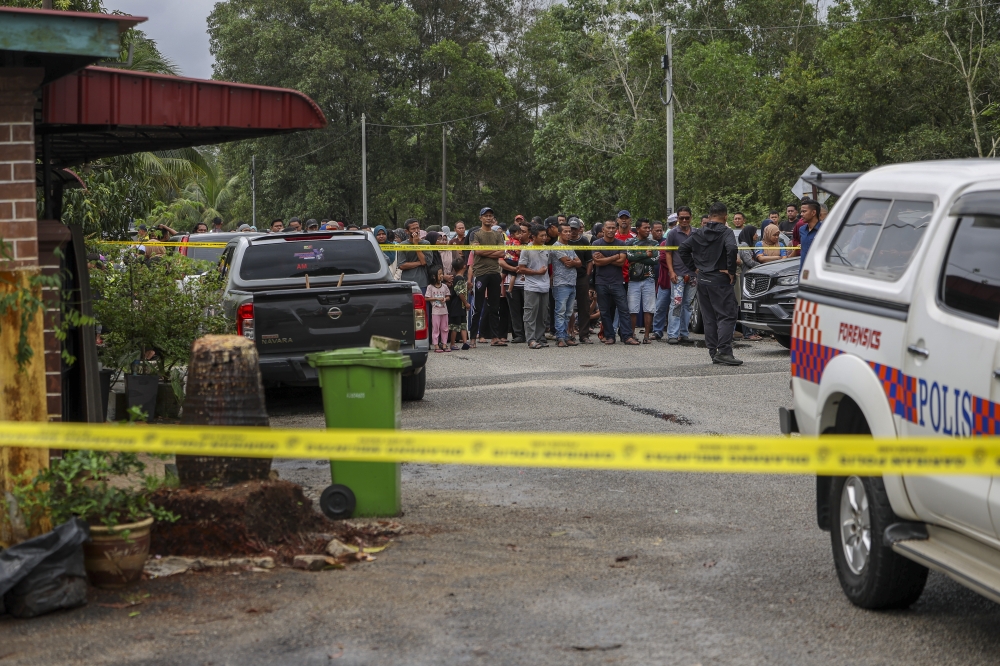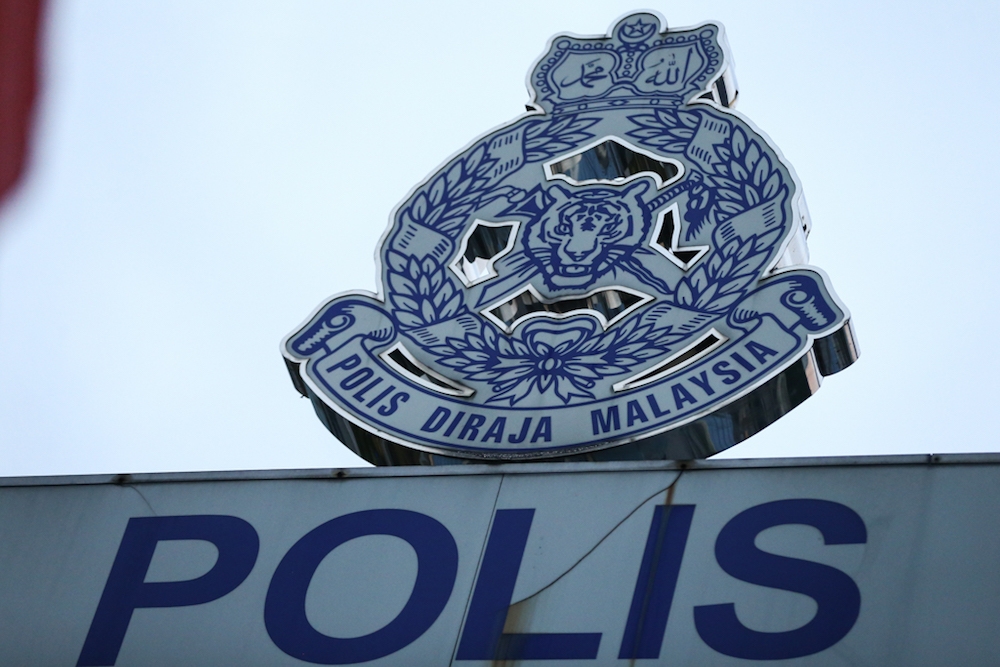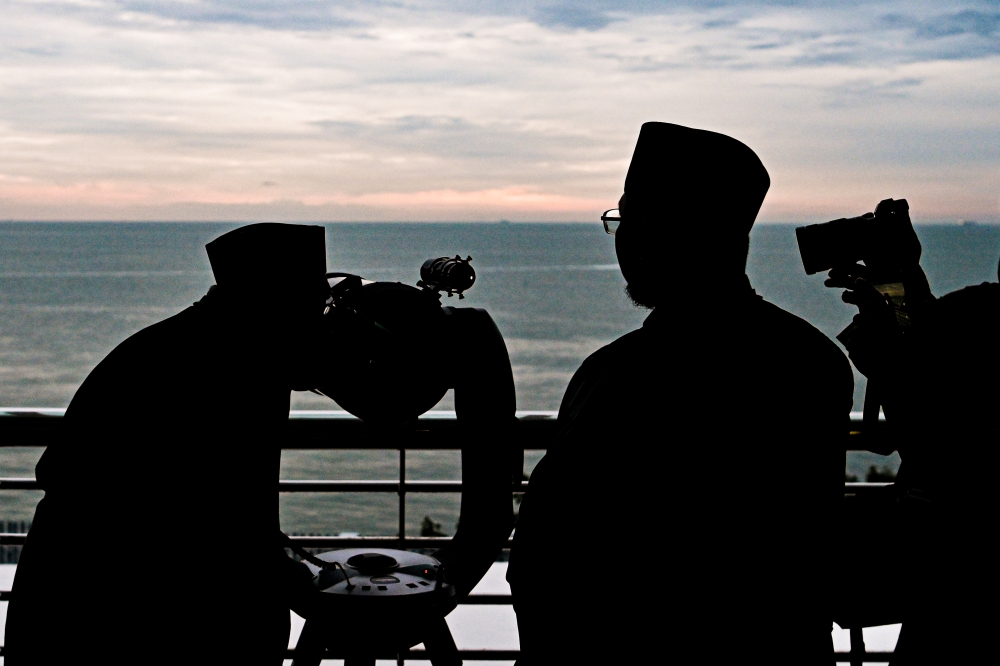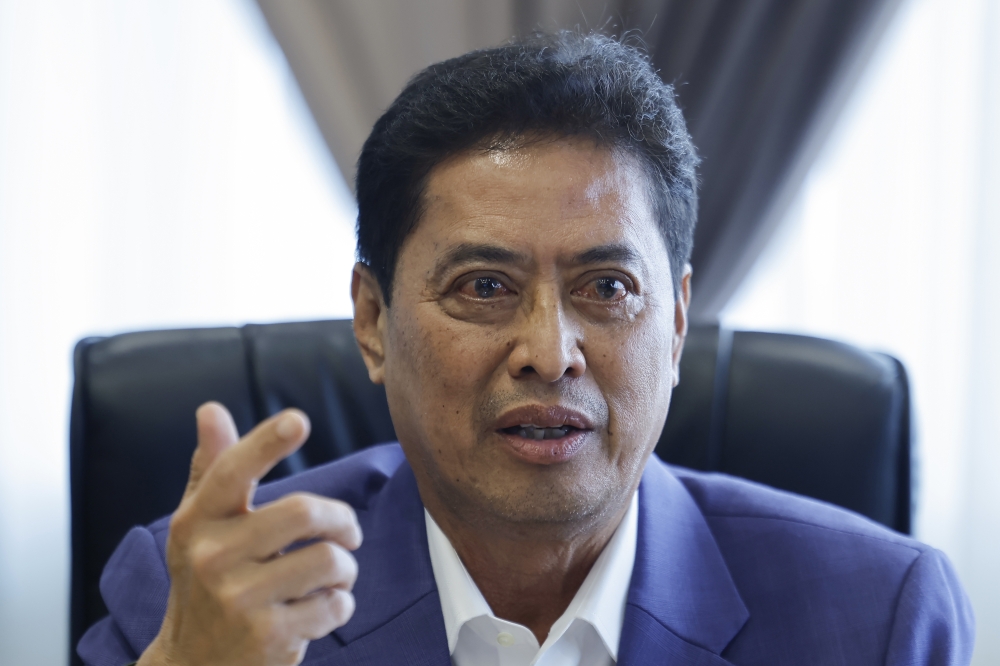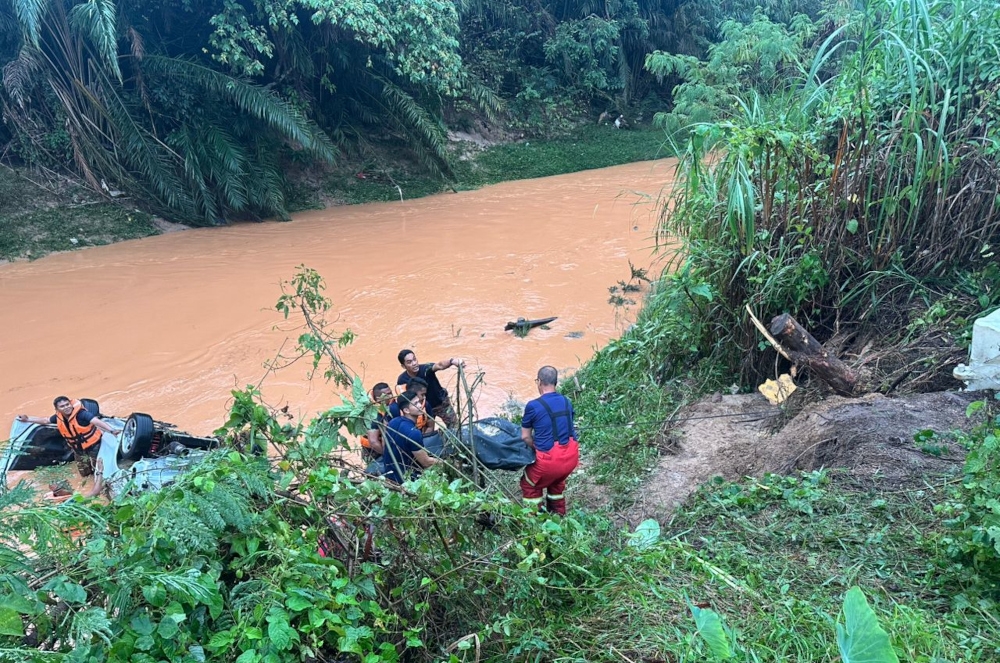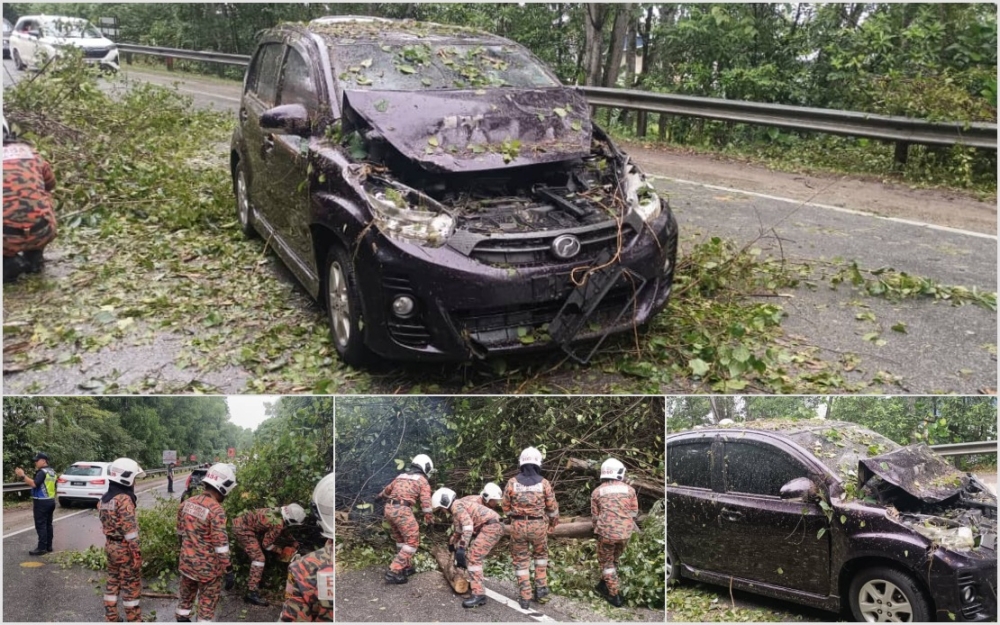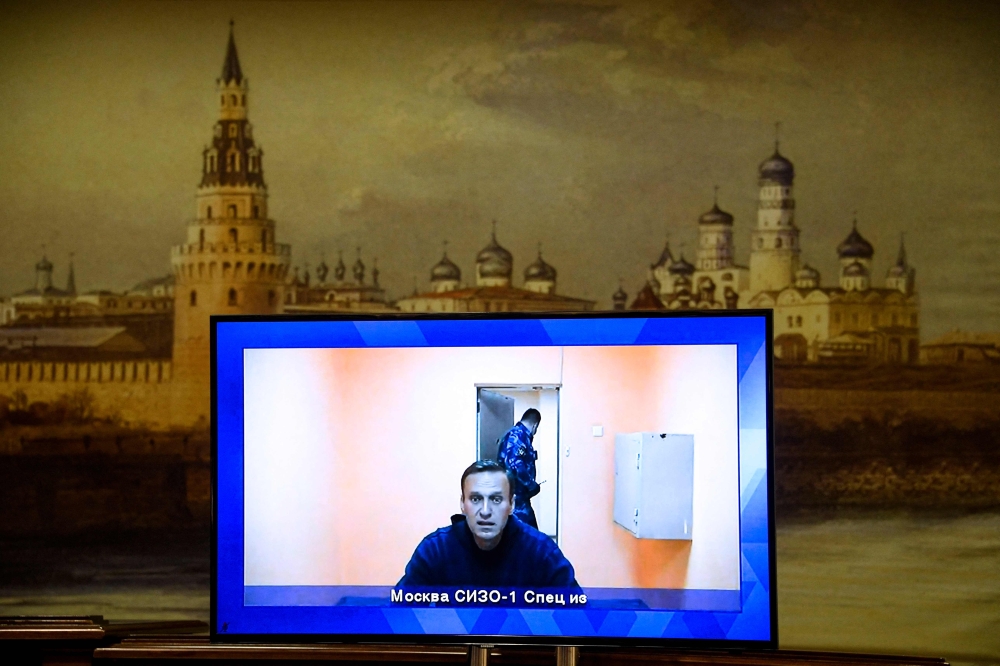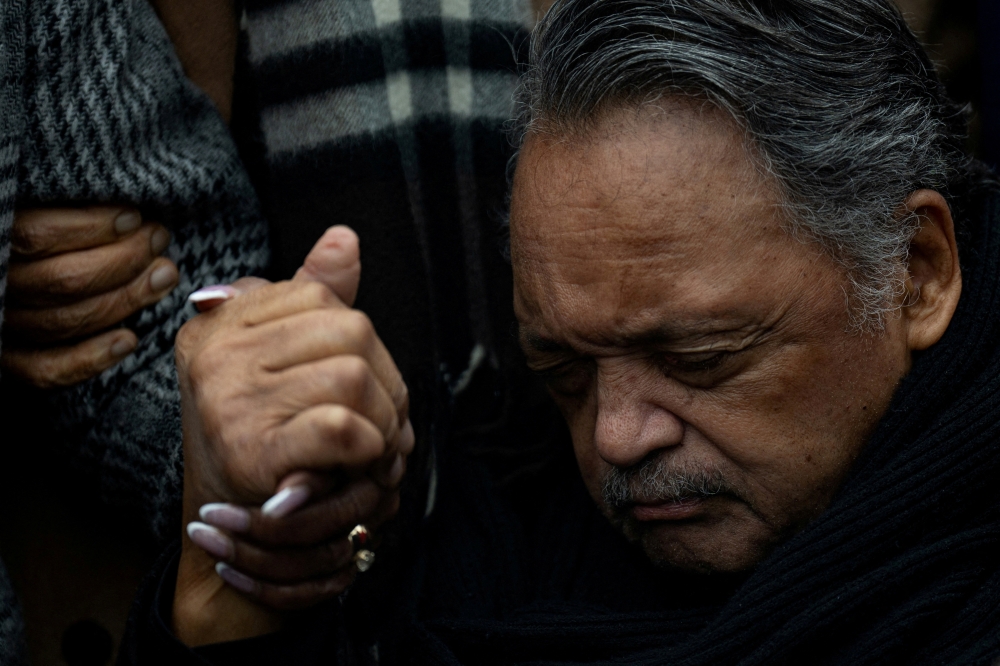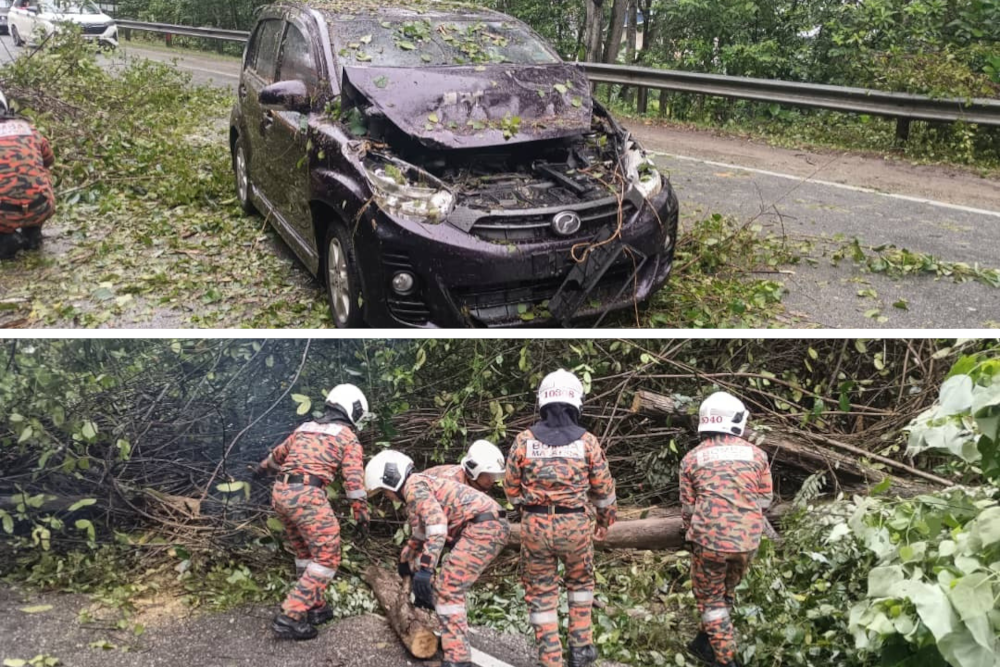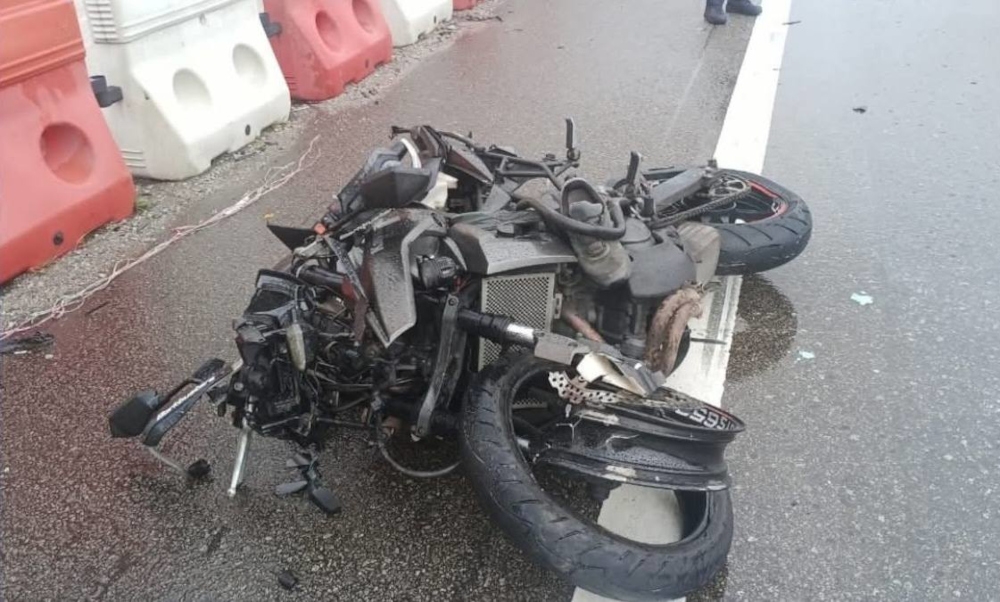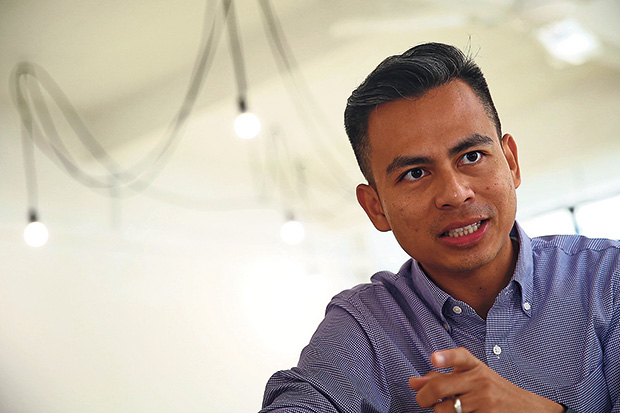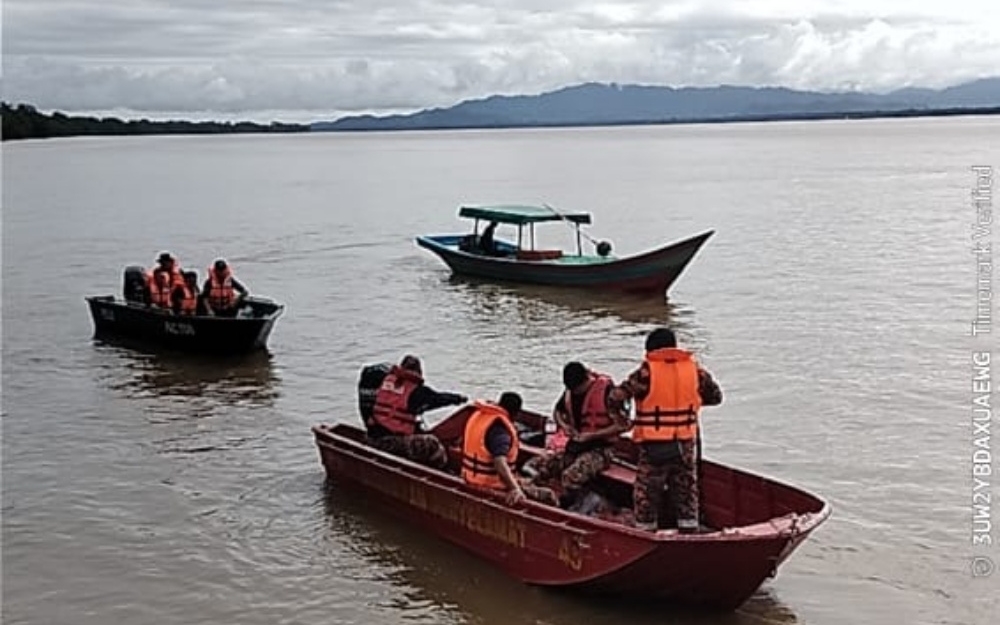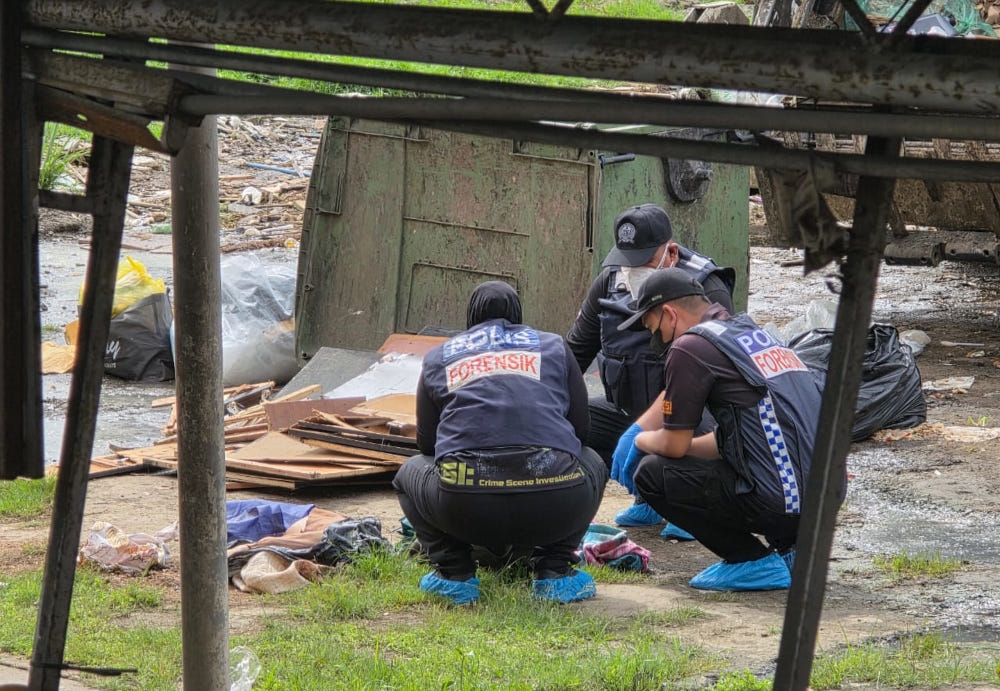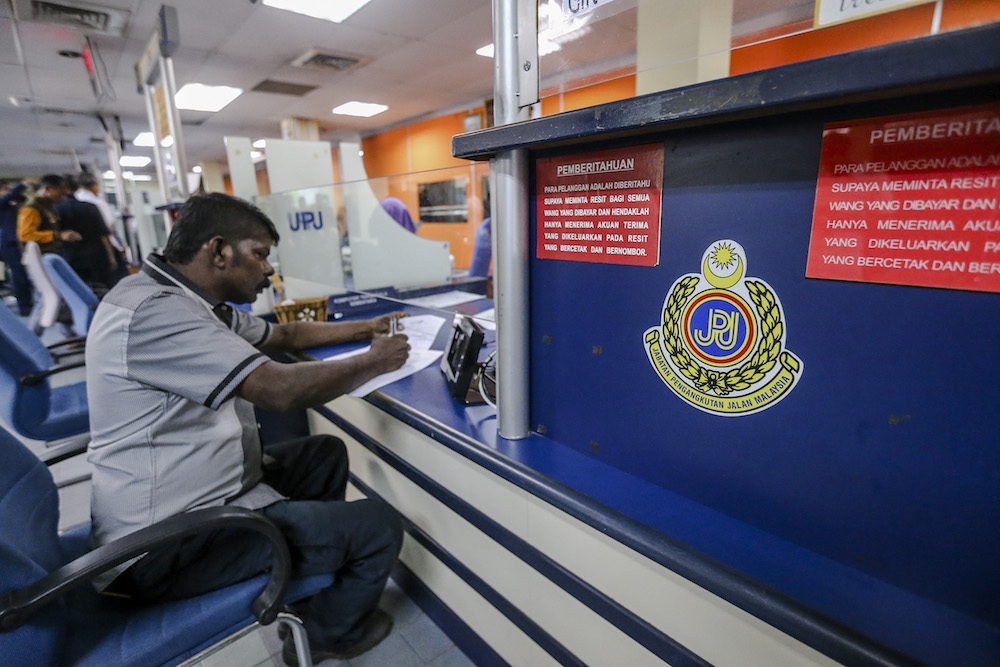KUALA LUMPUR, Feb 7 — PKR’s Fahmi Fadzil has “played” many roles in his life: chemical engineering graduate, theatre performer and writer, activist and now political change advocate and troubleshooter.
Fahmi, a man used to wearing many different hats, is still popularly known as PKR vice-president Nurul Izzah Anwar’s political secretary even after he stopped doing that two years ago.
Almost 17 years after Fahmi’s first brush with politics, the 35-year-old has shot up the party ranks to take on bigger responsibilities as PKR’s communications director and PKR youth vice-chief, as well as taking on the running of the PKR Setiawangsa service centre in a bid to help the party finally win the federal seat in the next polls.
Fahmi can trace his political journey back to his activist days, which was sparked by the Reformasi movement born of the 1998 sacking of then-Umno leader Datuk Seri Anwar Ibrahim from the deputy prime minister post.
Fahmi remembers actively helping candidates — including Nurul Izzah herself — from Anwar’s subsequently-formed PKR party campaign in four general elections from the period of 1999-2013.
Having only formally joined politics in the last five years, Fahmi is keenly aware that his friends working in the corporate, banking and engineering sectors are earning up to eight times more than what he does to support his recently-retrenched wife and toddler and political work.
As a self-confessed idealist armed with an engineer’s pragmatic approach to politics, Fahmi is brimming with ideas on how to bring lasting change for a better Malaysia.
Here, he shares with us his story and some of his ideas.
In his own words:
So my involvement in politics goes all the way back to the end of high school, right when Reformasi first literally exploded on the scene, so I attended street protests at Masjid Negara. I was there visiting Datuk Seri Anwar‘s house when he was first sacked, I helped out. I remember back then the first candidate in Lembah Pantai was Zainur Zakaria, I was helping out a lot at Bangsar at the time, but I formally became a member of the party in 2010.
In 2004 and 2008, I was helping out Sivarasa (Rasiah) during election campaigns. I remember in 2008 I was very involved in his operations centre, I remember I was reading out (the results) from all of the schools and saluran and announcing to the people who had gathered at his polling centre on polling night. I remember very distinctly that feeling, that palpable sense of change... I was completely shocked and very very happy that we won in 2008 in a lot of seats. I remember telling everybody to go back because we were getting SMSes telling everyone to stay calm and stay at home at that time.
In 2010 I was doing an online show called the Fairly Current Show, we were covering the three by-elections, so I interviewed Nurul Izzah, and after that interview she invited me to come and help out in Lembah Pantai to do some activities in Bangsar, so I attended a couple of activities and I felt that Nurul Izzah was someone who represented for me the kind of change that I wanted to see. We were of the same generation, she is about my age, and I felt that these kind of people, people who are bringing change have to be supported because they are different, they do not have the same kind of problems, she didn’t come from Umno. I felt it was a fresh start.
My political coming of age was Reformasi and it was coming at a time when we had no access or very little access to information and I have always been a proponent of freedom of information, especially when it comes to how government works or how government doesn’t work and especially empowerment at the grassroots local community, giving people the understanding — politically what they can do, what their rights are — has always been at the forefront. Because before I got involved in formal politics, I saw myself as an activist, so it was all about, as young people what do we know about what’s happening in this country; if we saw something wrong, what is the root cause of that wrong, can it be changed by that system or did it require direct action.
But I believe the system could be better, the DBKL system itself, for example it’s completely unfair that the majority of seats were won by the federal opposition yet we have one representative in the board of advisors of DBKL and that is only by virtue of Selangor because Selangor has one seat in the DBKL board of advisors. People don’t know and there’s not a sense of accountability among the board of advisors in DBKL, as parliamentarians we see people from Keadilan, DAP really pushing for greater accountability in the structure of DBKL. We have to realise that DBKL’s annual budget is practically equivalent to Penang and Selangor governments’ combined, it runs in the billions. The work that they are doing is fairly good, but we need to ask now in this time of the new normal how can we stretch the ringgit further so that we don’t overtax the taxpayers, people who are paying GST now, people who are paying assessment?
Every vote counts, so what we tell people is go to the Election Commission (SPR) office… or in Selangor they are a little bit more fortunate because ketua kampung can still register, there are still Assistant Registrar Officers, but KL, no, and this is a huge handicap but we are making do, we are finding ways to do it, it needs to happen, it needs to get done, but more than that, from a systems point of view, from a big picture kind of view, the party’s position has always been that we should call for automatic registration for those of eligible voting age.
At the same time I also believe firmly that the voting age should be reduced to 18, because if at 18 you can join the police, join the army, serve the country, in fact some people sacrifice their lives in defence of the country, why can’t you take part in democracy? Why can’t you vote? And I think this is going to be a huge moral question — why is it that you can die for your country, but you can’t vote for who runs the country?
Actually to be honest what keeps me going is the sense that I’m helping to bring some kind of change, that with this party, with members, with volunteers, we are trying to give people a new hope. And really like when my wife asked me that question — really what have I gotten out of it, the thing that I go back to all the time is when I was helping Nurul Izzah, I remember on the last day of campaigning in 2013, I remember telling everybody that my wife was due practically any time and she was out making those ‘Malaysian Spring’ flags and even she believed that something can be done and I hoped against all hope at that time that the day after — on polling day — or that when my son was born he would be born into a new Malaysia and a better Malaysia.
Really for me I am doing this for my son’s generation. We deserve so much better. You know I have studied abroad, I have gone to school here and my belief is that the Malaysia that I grew up in and the Malaysia that we can be — we have to do a lot… I believe we have to sacrifice so that the next generation of Malaysians will feel proud enough that we have the best schools, the best universities, the best job opportunities, that the best Malaysia that we deserve is there.
A lot of my friends are abroad and probably will not come back. What’s happening? Where is that Malaysia when I was growing up? It was different, something has gone wrong, that’s why I really believe in my hearts of hearts that Malaysians deserve so much more, that we must make not only a better Malaysia but a Malaysia that we really deserve.

